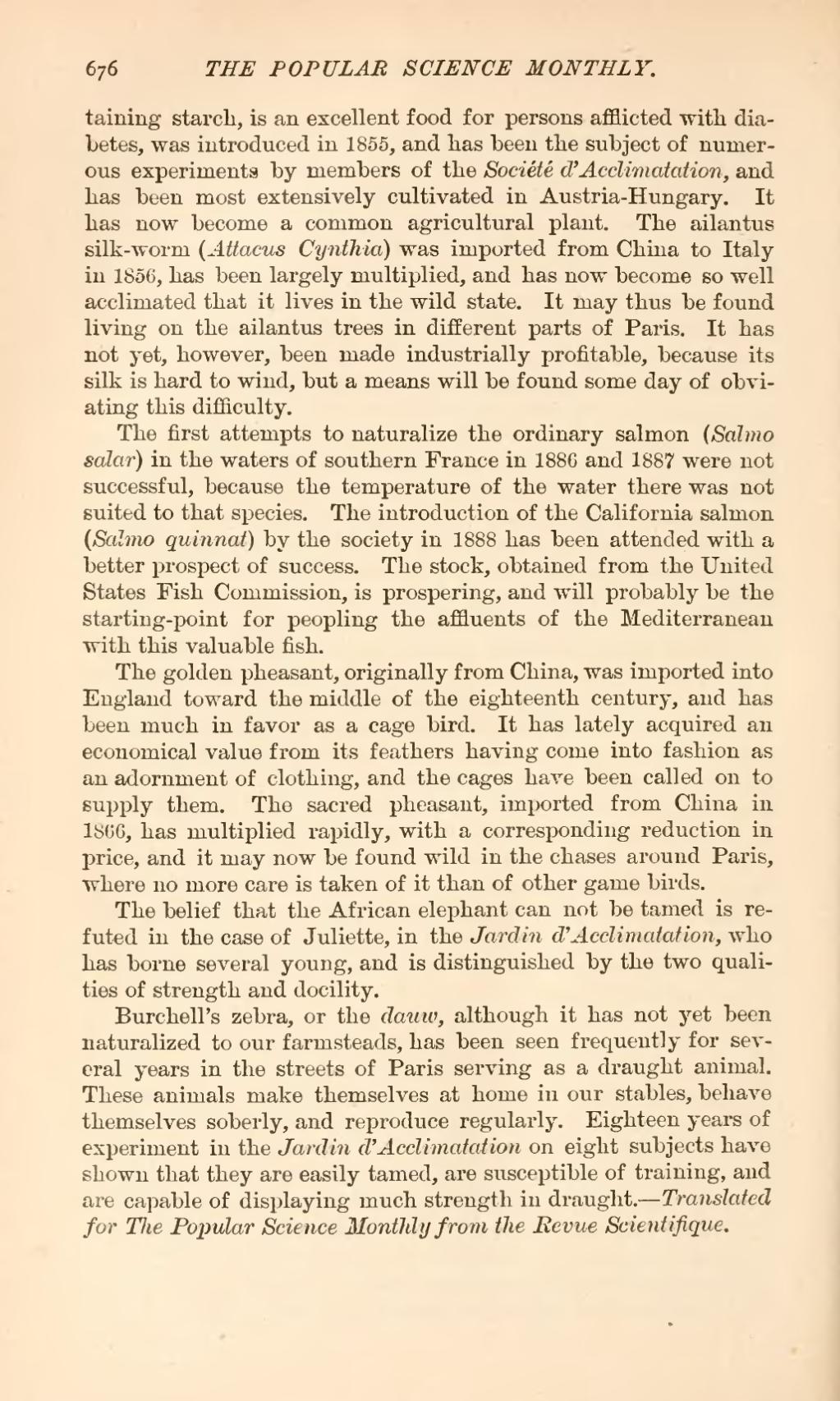taining starch, is an excellent food for persons afflicted with diabetes, was introduced in 1855, and has been the subject of numerous experiments by members of the Société d'Acclimatation, and has been most extensively cultivated in Austria-Hungary. It has now become a common agricultural plant. The ailantus silk-worm (Attacus Cynthia) was imported from China to Italy in 1856, has been largely multiplied, and has now become so well acclimated that it lives in the wild state. It may thus be found living on the ailantus trees in different parts of Paris. It has not yet, however, been made industrially profitable, because its silk is hard to wind, but a means will be found some day of obviating this difficulty.
The first attempts to naturalize the ordinary salmon (Salmo solar) in the waters of southern France in 1886 and 1887 were not successful, because the temperature of the water there was not suited to that species. The introduction of the California salmon (Salmo quinnat) by the society in 1888 has been attended with a better prospect of success. The stock, obtained from the United States Fish Commission, is prospering, and will probably be the starting-point for peopling the affluents of the Mediterranean with this valuable fish.
The golden pheasant, originally from China, was imported into England toward the middle of the eighteenth century, and has been much in favor as a cage bird. It has lately acquired an economical value from its feathers having come into fashion as an adornment of clothing, and the cages have been called on to supply them. The sacred pheasant, imported from China in 1866, has multiplied rapidly, with a corresponding reduction in price, and it may now be found wild in the chases around Paris, where no more care is taken of it than of other game birds.
The belief that the African elephant can not be tamed is refuted in the case of Juliette, in the Jardin d'Acclimatation, who has borne several young, and is distinguished by the two qualities of strength and docility.
Burchell's zebra, or the dauw, although it has not yet been naturalized to our farmsteads, has been seen frequently for several years in the streets of Paris serving as a draught animal. These animals make themselves at home in our stables, behave themselves soberly, and reproduce regularly. Eighteen years of experiment in the Jardin d'Acclimatation on eight subjects have shown that they are easily tamed, are susceptible of training, and are capable of displaying much strength in draught.—Translated for The Popular Science Monthly from the Revue Scientifique.
